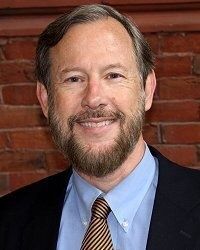
Dr. Karl Hausker ‘79 | Zero-Carbon Electricity: The Key to the Clean Energy Transition
Abstract: To avoid worsening impacts of climate change, the United States and the world as a whole must dramatically reduce greenhouse gas emissions over the next 30 years, and carbon dioxide emissions must be virtually eliminated by mid-century. This will require the electricity sector to play a pivotal role in the transformation of how we produce and consume energy. We need to switch completely to zero- and low-carbon means of producing electricity, while switching from fossil fuel combustion to use of electricity in a variety of applications in buildings, transportation, and industry. This seminar will explore the issues, challenges, and opportunities in the electricity sector as we transition to clean energy
Bio: Dr. Karl Hausker is a Senior Fellow in the Climate Program at the World Resources Institute. He leads analysis and modeling of net-zero emission pathways, and work on electricity market design. He served as an Expert Reviewer for the IPCC Sixth Assessment Report.
He has worked for three decades in the fields of climate change, energy, and environment in a career that has spanned legislative and executive branches, research institutions, NGOs, and consulting. Before joining WRI, Karl was a Vice President at ICF Consulting from 2007-2013. He previously served as Deputy Assistant Administrator in EPA’s Policy Office, and as Chief Economist for the Senate Energy and Natural Resources Committee. In 1999, he was a Visiting Fellow at the Tata Energy Research Institute in New Delhi.
Karl holds an M.P.P and Ph.D. in Public Policy from University of California, Berkeley, and received his B.A. in Economics from Cornell University.
This event is presented as part of the 2024 Perspectives on the Climate Change Challenge Seminar Series:
Most Mondays, Spring Semester 2024, 2:55-4:10pmVia ZoomThis university-wide seminar series is open to the public (via Zoom), and provides important views on the critical issue of climate change, drawing from many perspectives and disciplines. Experts from Cornell University and beyond present an overview of the science of climate change and climate change models, the implications for agriculture, ecosystems, and food systems, and provide important economic, ethical, and policy insights on the issue. The seminar is being organized and sponsored by the Department of Biological and Environmental Engineering and Cornell Atkinson Center for Sustainability.